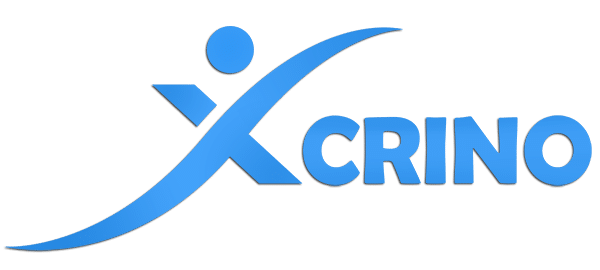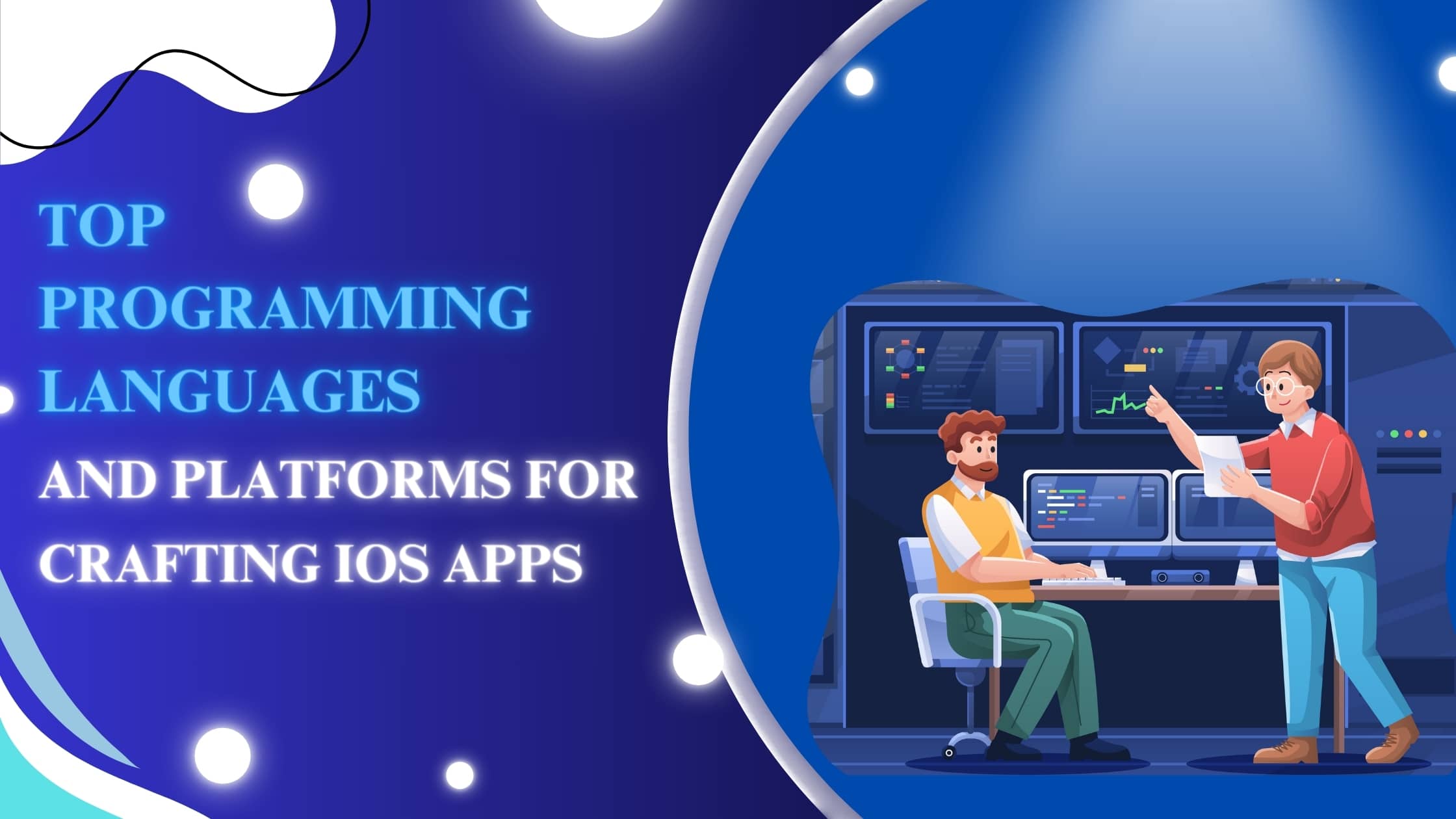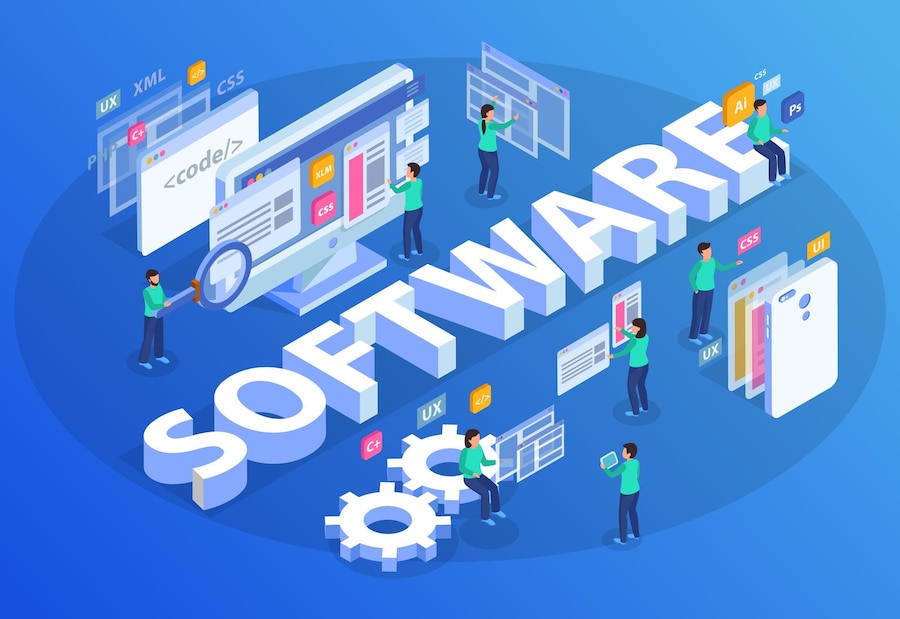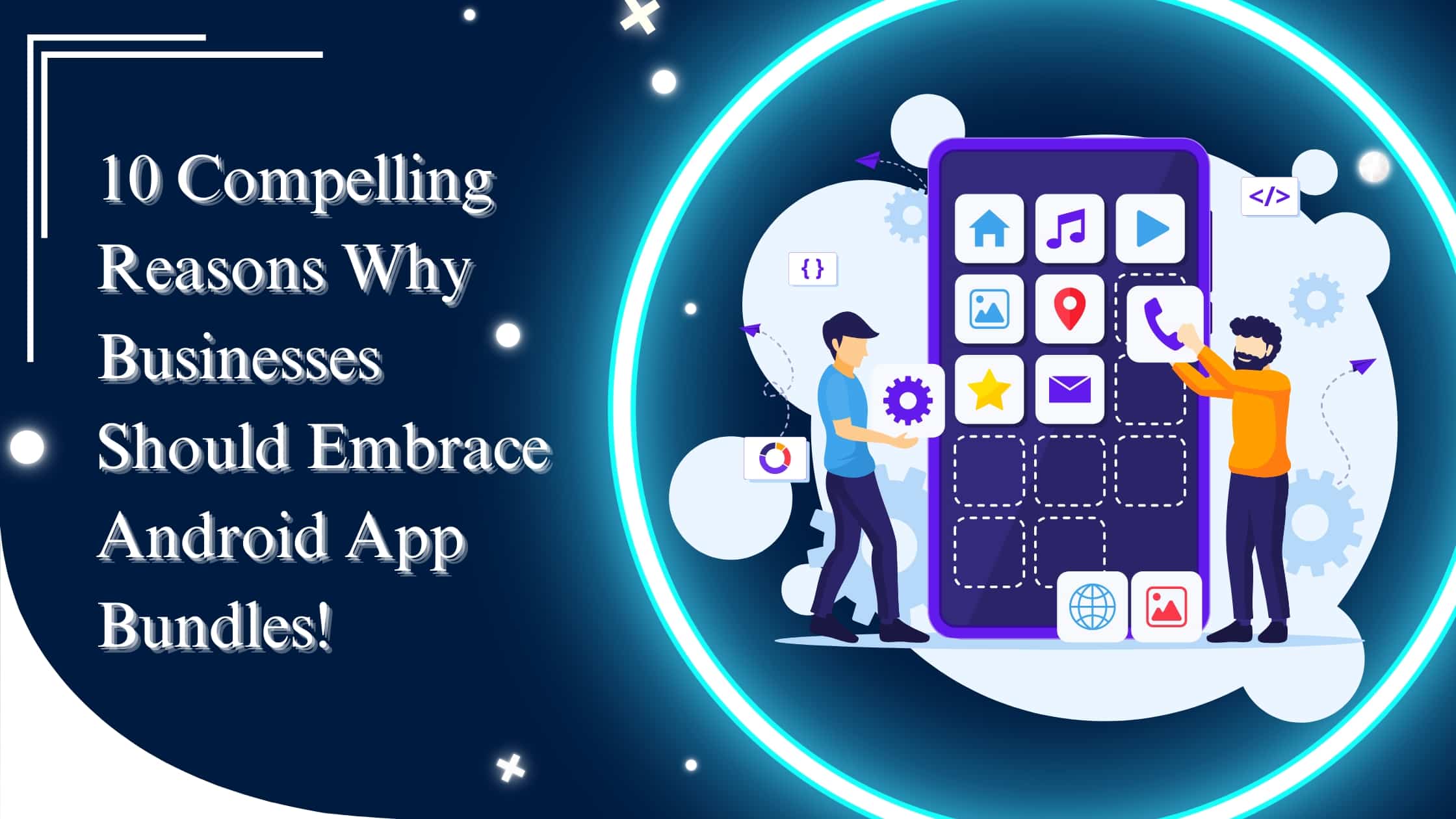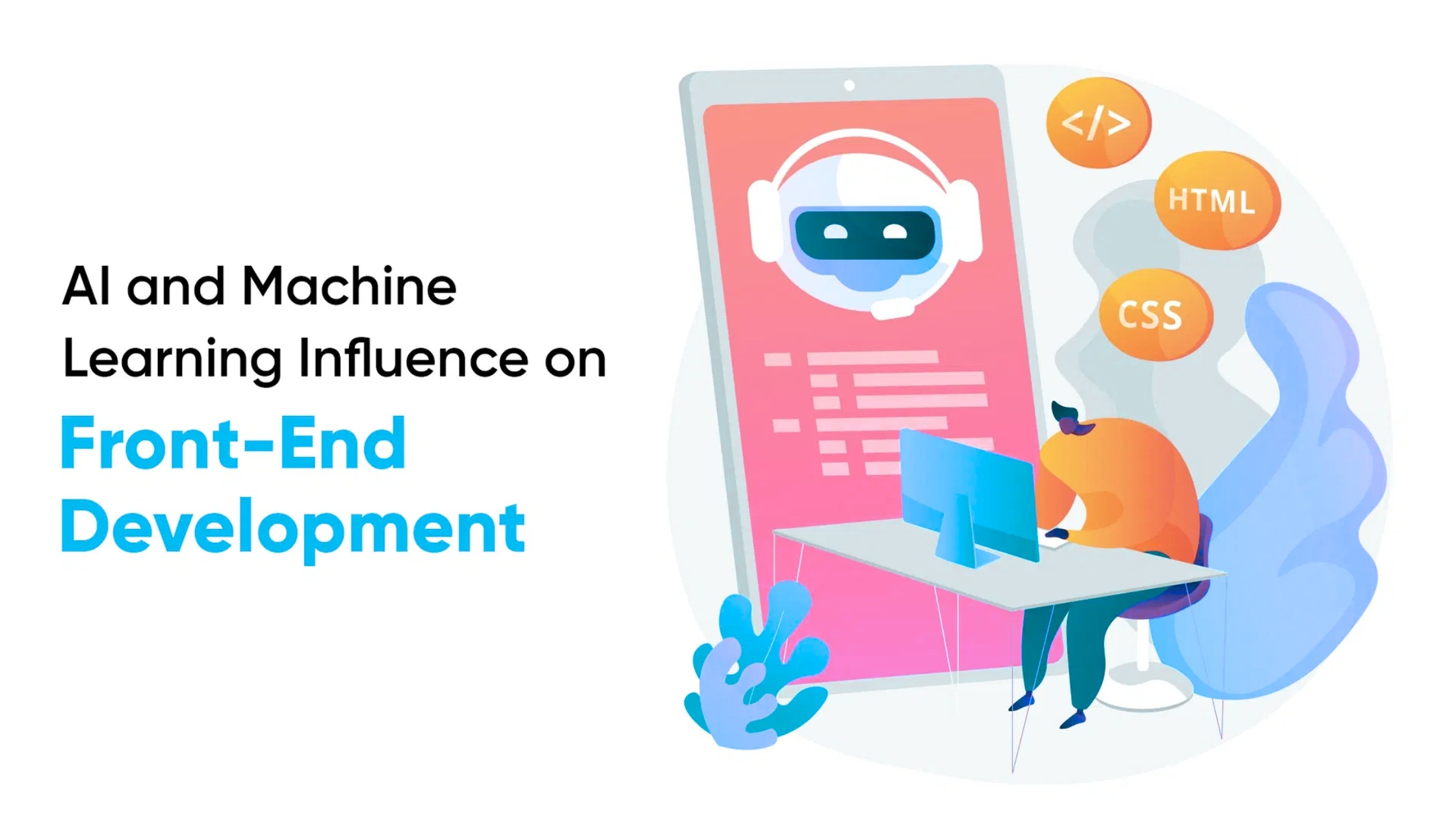In the dynamic global of mobile app improvement, iOS stands proud as a top platform due to its high overall performance, robust safety, and considerable user base. For developers, deciding on the right programming languages and platforms is crucial to developing effective and attractive iOS packages. This article, brought to you by Xcrino Business Solutions, explores the top programming languages and improvement systems for iOS app development.
The Best Programming Languages for iOS App Development
1. Xcode
Xcode is Apple’s included development surroundings (IDE) for macOS. It is the pass-to platform for iOS app improvement for numerous reasons:
a) Comprehensive Toolset: Xcode includes a code editor, simulators, and debugging gear.
b) Interface Builder: Allows for designing consumer interfaces visually.
c) Swift Integration: Seamlessly integrates with Swift, making it the nice preference for Swift improvement.
d) Testing: Built-in trying out equipment like XCTest and UI trying out guide.
2. Xamarin
Xamarin is a Microsoft-owned framework that uses C# for pass-platform cell app development. It offers:
a) Shared Codebase: Develop iOS and Android apps with the use of an unmarried codebase.
b) Native Performance: Xamarin.IOS and Xamarin.Android provides direct get admission to native APIs, making sure excessive overall performance.
c) Development Tools: Works seamlessly with Visual Studio, a powerful IDE with enormous debugging and diagnostic gear.
d) Large Community: A strong assist network and comprehensive documentation.
3. React Native
React Native, developed by Facebook, is a popular framework for building cross-platform mobile apps using JavaScript and React. Its key features include:
a) Native Components: React Native allows the use of native components, ensuring a native look and feel.
b) Efficient Development: With features like hot reloading, development is faster and more efficient.
c) Cross-Platform Compatibility: Write components that work on both iOS and Android, reducing development time and cost.
d) Large Ecosystem: Access to a wide range of libraries and a supportive community.
4. Flutter
Flutter, developed by Google, is an open-source UI toolkit for building natively compiled mobile, web, and desktop applications from a single codebase. Why Flutter stands out:
a) Single Codebase: Write one codebase for iOS, Android, web, and desktop.
b) Expressive UI: Flutter’s rich set of pre-designed widgets helps create attractive UIs.
c) High Performance: Compiled to ARM code, ensuring high performance on mobile devices.
d) Hot Reload: Like React Native, Flutter offers hot reload, speeding up the development process.
5. Appcelerator Titanium
Appcelerator Titanium is a framework that allows you to create a cross-platform app using JavaScript. The main benefits are:
a) JavaScript Base: Implements JavaScript, making it accessible to more developers.
b) Native Performance: Provides native UI components, ensuring high performance and native look and feel.
c) Appcelerator Studio: Provides a comprehensive development environment with tools for coding, testing, and deployment.
d) Cloud Services: Integrated backup services to support app features such as push notifications and data storage.
Leading Platforms for iOS App Development
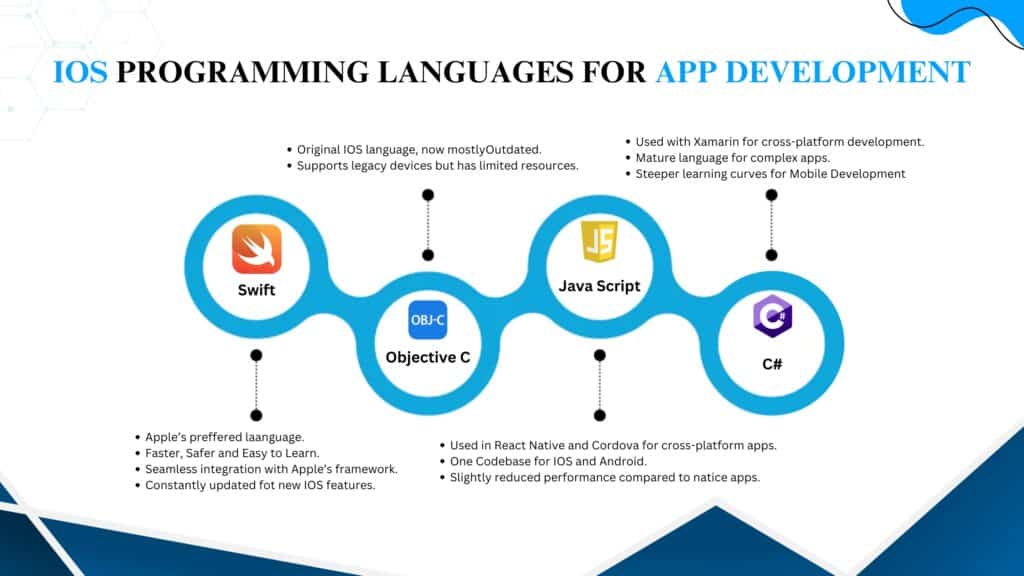
1. Swift
Swift is Apple’s effective and intuitive programming language for iOS, macOS, watchOS, and tvOS app development. Since its introduction in 2014, Swift has received full-size popularity because of its overall performance and safety features. Here’s why Swift is a pinnacle desire:
a) Easy to Learn: Swift’s syntax is concise and expressive, making it simpler for new developers to choose from.
b) Performance: Swift is designed to be rapid, substantially outperforming Objective-C in many benchmarks.
c) Safety: With optional and kind inference features, Swift helps save you from commonplace programming errors.
d) Interoperability: Swift seamlessly interoperates with Objective-C, permitting the use of current libraries.
2. Objective-C
Objective-C is the long-status programming language for iOS and macOS development. Although Swift is now favored, Objective-C stays applicable for numerous reasons:
a) Legacy Code: Many current iOS programs and frameworks are written in Objective-C.
b) Mature Language: Objective-C has been round for the reason that Nineteen Eighties, providing a strong and mature environment for improvement.
c) Dynamic Runtime: Objective-C’s dynamic runtime permits for powerful introspection and manipulation of items.
3. C#
C# is a versatile language used with Xamarin, a popular framework for cross-platform mobile development. Here’s why C# is advantageous:
a) Cross-Platform Development: C# with Xamarin allows for shared codebases between iOS, Android, and Windows apps.
b) Robust Library Support: C# offers a vast array of libraries for various functionalities, reducing development time.
c) Performance: With just-in-time (JIT) compilation and ahead-of-time (AOT) compilation options, C# apps can achieve native performance levels.
4. JavaScript with React Native
JavaScript, when used with the React Native framework, provides a powerful toolset for cross-platform mobile app development. Here’s what makes JavaScript and React Native a strong choice:
a) Cross-Platform Efficiency: Write once and deploy on both iOS and Android.
b) Large Community and Ecosystem: A vast number of plugins and libraries are available, backed by a robust community.
c) Hot Reloading: React Native’s hot reloading feature speeds up development by allowing developers to see changes instantly.
Conclusion
Choosing the right programming language and platform is crucial for successful iOS app development. Swift and Objective-C remain the primary choices for native development, while Xamarin with C# and React Native and JavaScript offers strong cross-platform capabilities making Xcode the definitive IDE for iOS development, with Xamarin, React Native, Flutter, Appcelerator Titanium for a variety of included development needs and more platforms.
At Xcrino Business Solutions, we specialize in using these tools to create innovative iOS applications that meet your business needs. Whether you want to develop a native app or a cross-platform solution, our team of experts is here to help guide you through the development process and deliver a high-quality product. Get started on your iOS app development journey by contacting us today.
